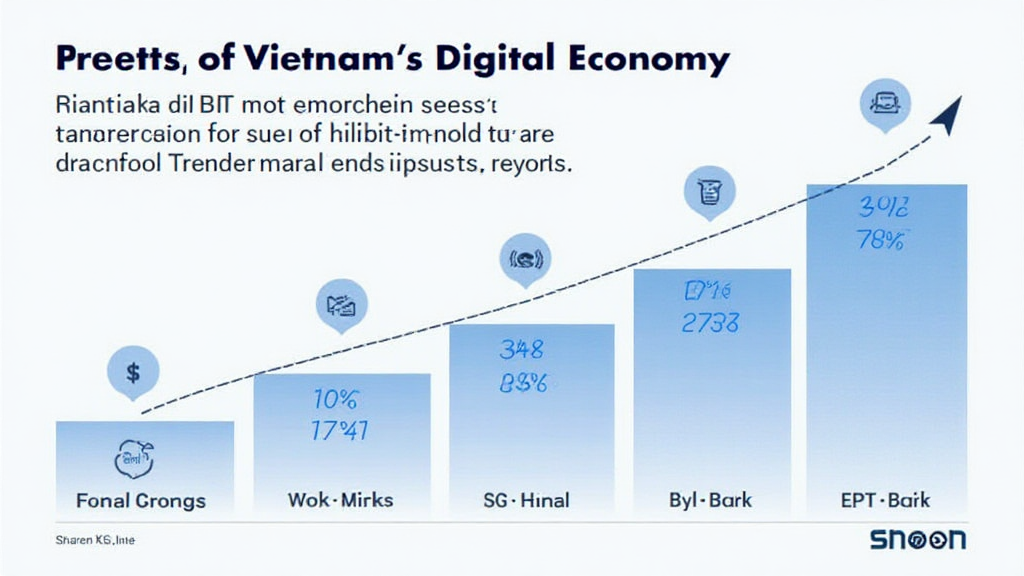Driving the Digital Economy Transition in Vietnam: The Future of HIBT
The landscape of digital economies is rapidly evolving, especially in emerging markets like Vietnam. With an impressive growth rate of over 30% in digital adoption as of 2023, the country is set to become a significant player in the global digital economy. However, with this growth comes a myriad of challenges, particularly in security. According to recent reports, Vietnam lost approximately $150 million to cyberattacks in 2023 alone. Here’s where HIBT (Hệ Thống Thông Tin Blockchain) enters the picture, revolutionizing Vietnam’s approach to the digital economy transition. This article will delve into the significance of HIBT for Vietnam’s digital economy and the implications for blockchain technology security.
Understanding HIBT Vietnam
HIBT represents a innovative framework tailored to enhance blockchain application in Vietnam’s digital landscape. It sets forth standardized protocols for security and efficiency, ensuring that all blockchain implementations meet stringent safety criteria. A pivotal aspect of HIBT is its emphasis on tiêu chuẩn an ninh blockchain (blockchain security standards), which align with international best practices.
The Role of HIBT in Vietnam’s Digital Economy
- Enhancing Security: HIBT introduces protocols aimed at safeguarding digital assets, a necessity given the rising instances of blockchain-related breaches.
- Boosting User Trust: By adhering to HIBT standards, platforms can increase their credibility among users, facilitating broader acceptance and engagement.
- Driving Innovation: HIBT encourages local startups to innovate, thereby contributing to economic growth and job creation.
A Deeper Look at Blockchain Security Risks in Vietnam
With the rapid technological advancements in Vietnam, understanding the potential security risks associated with blockchain technology is crucial. Here’s a breakdown of some of the most significant vulnerabilities:

- Smart Contract Exploits: Improperly audited smart contracts can lead to significant financial losses.
- Private Key Management: Insecure handling of keys puts users’ digital assets at risk.
- Phishing Attacks: Cybercriminals increasingly target users through misleading interfaces.
To tackle these challenges effectively, mechanisms such as regular audits and integrating advanced blockchain security standards must be prioritized.
Real-World Data on Vietnamese Digital Economy Growth
| Year | Digital Economy Growth (%) |
|---|---|
| 2020 | 24 |
| 2021 | 26 |
| 2022 | 29 |
| 2023 | 30 |
Source: Vietnam Ministry of Information and Communications
How HIBT Facilitates the Transition
Transitioning to a digital economy requires cohesive collaboration among different stakeholders: businesses, regulators, and technology providers. HIBT serves as a bridge facilitating such cooperation. Let’s explore how:
- Policy Support: HIBT aligns with Vietnam’s government initiatives aiming for a cohesive regulatory framework around blockchain technologies.
- Educational Initiatives: By providing training programs, HIBT aims to elevate the skill levels of individuals engaging with blockchain technologies.
- Fostering Partnerships: HIBT encourages partnerships between Vietnamese tech firms and global blockchain leaders.
Future Trends in Vietnam’s Blockchain Ecosystem
Looking ahead, here are some notable trends that are set to shape Vietnam’s blockchain landscape:
- Increased Regulatory Clarity: As the government sets clearer regulations, businesses will gain more confidence in deploying blockchain solutions.
- Emerging Altcoins: With talks of the 2025年最具潜力的山寨币 (most promising altcoins), Vietnamese developers are likely to launch innovative tokens catering to specific market demands.
- Continued Growth in NFT Market: NFTs have captured global attention; Vietnam could leverage this trend in the art and gaming sectors.
Implementing Blockchain Security: Practical Steps
To further ensure blockchain safety, here are some practical steps stakeholders should consider:
- Regular Audits: Conduct periodic audits of smart contracts to identify and rectify vulnerabilities.
- User Education: Making users aware of potential security threats and preventative measures can mitigate risks.
- Robust Private Key Management Systems: Implementing hardware wallets like Ledger Nano X can greatly reduce the risk of hacks.
Conclusion: The Road Ahead for HIBT and Digital Economy Transition in Vietnam
The future of Vietnam’s digital economy is bright, but navigating the complex landscape of blockchain technology requires a robust framework like HIBT. By bolstering security standards through HIBT, Vietnam can ensure sustainable growth in its digital economy, safeguarding users’ interests while fostering innovation. As we stand on the cusp of this transition, embracing and implementing these practices will be critical for Vietnam’s success in the global digital economy. With the increasing demand for blockchain solutions, platforms that follow HIBT’s guidance will be well-positioned to thrive.
In conclusion, HIBT is not just a set of standards; it’s a paradigm shift that promises to elevate Vietnam’s standing in the global digital economy landscape, aligning security with innovation.
For more insights on the evolving blockchain landscape in Vietnam, visit hibt.com.
Author: Dr. Nguyen Tran, a blockchain and digital economy researcher with over ten published papers on blockchain technology. He has successfully led audits for multiple high-profile projects across Southeast Asia.





